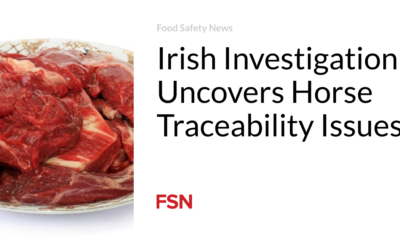Health
Research links xylitol to an increased risk of heart attack and stroke

Credit: Pixabay/CC0 public domain
Researchers at Cleveland Clinic found that higher amounts of the sugar alcohol xylitol are associated with an increased risk of cardiovascular events such as heart attack and stroke.
The team, led by Stanley Hazen, MD, Ph.D., confirmed the link in a large-scale patient analysis, preclinical research models, and a clinical intervention study. The findings were published in the European Heart Journal.
Xylitol is a common sugar substitute used in sugar-free candy, gum, baked goods, and oral products such as toothpaste. Over the past decade, the use of sugar substitutes, including sugar alcohols and artificial sweeteners, has increased significantly in processed foods promoted as healthy alternatives.
The same research team found a similar link between erythritol and cardiovascular risk last year. Xylitol is not as common in the US as erythritol in keto or sugar-free food products, but is common in other countries.
“This study once again demonstrates the immediate need to investigate sugar alcohols and artificial sweeteners, especially as they continue to be recommended in the fight against conditions such as obesity or diabetes,” says Dr. Hazen, chairman of Cardiovascular and Metabolic Sciences at Cleveland Clinic’s Lerner Research Institute and co-section chief of preventive cardiology at the Heart, Vascular and Thoracic Institute.
“It doesn’t mean you should throw away your toothpaste if it contains xylitol, but we should be aware that consuming a product with high concentrations may increase the risk of blood clot-related events.”
In this new study, researchers identified that high levels of circulating xylitol were associated with an increased three-year risk of cardiovascular events in an analysis of more than 3,000 patients in the US and Europe. A third of patients with the highest amount of xylitol in their plasma were more likely to have a cardiovascular event.
To confirm the findings, the research team conducted preclinical testing and found that xylitol caused platelets to clot and increased the risk of thrombosis. Researchers also monitored the platelet activity of people who ingested a xylitol-sweetened beverage versus a glucose-sweetened beverage and found that each measure of clotting ability increased significantly immediately after ingesting xylitol, but not glucose.
The authors note that further studies on the long-term cardiovascular safety of xylitol are warranted. The study had several limitations, including that clinical observational studies show an association, not a causal relationship. They recommend talking to your doctor or a certified dietitian for more information about healthy food choices and for personalized recommendations.
The study is part of Dr.’s ongoing research. Hare to factors contributing to residual cardiovascular risk. His team follows patients over time and finds chemical signatures in the blood that can predict the future development of heart and metabolic diseases. He has made groundbreaking discoveries in atherosclerosis and inflammatory disease research, including the groundbreaking discovery linking gut microbial pathways to cardiovascular and metabolic diseases.
Dr. Hazen also directs the Cleveland Clinic’s Center for Microbiome and Human Health and holds the Jan Bleeksma Chair in Vascular Cell Biology and Atherosclerosis.
More information:
Stanley L. Hazen et al., Xylitol is prothrombotic and associated with cardiovascular risk, European Heart Journal (2024). DOI: 10.1093/eurheartj/ehae244. academic.oup.com/eurheartj/art … 93/eurheartj/ehae244
Quote: Study links xylitol to increased risk of heart attack and stroke (2024, June 6), retrieved June 9, 2024 from https://medicalxpress.com/news/2024-06-links-xylitol-heart.html
This document is copyrighted. Except for fair dealing purposes for the purpose of private study or research, no part may be reproduced without written permission. The content is provided for informational purposes only.













